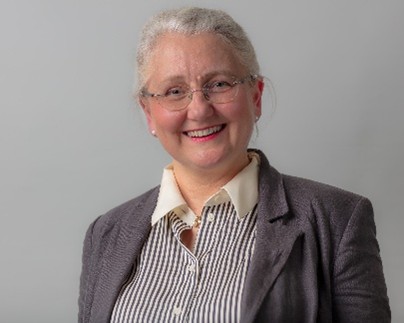Law reporting in the courts of England and Wales

A law student has many choices once they graduate with their OU degree. A life as a barrister or solicitor either in practice or working in-house for a company or for the government legal service or local authority are some obvious career paths. But what of the lesser-known alternatives? In this blog I will explore one of those alternatives: working as a law reporter in the courts. This is a career path I followed before taking up a position as a full time academic at The Open University.
The role of a law reporter is a job that synthesizes both the academic and the practical side of the law. Law reporters are a select group of around 40 qualified lawyers (mainly barristers, but some are also solicitors) who work either for the Incorporated Council of Law Reporting for England and Wales (ICLR), an incorporated charity, or for one of the private law reporting series such as Butterworths/Lexis Nexis or Westlaw/Thomson Reuters.
Law reporters either attend court and/or read online handed down judgements to decide which cases establish a new point of law (create precedent) and are consequently worthy of inclusion in the law report series such as the Weekly Law Reports, the Law Reports, The All England Law Reports, to name a few. Once they have made a decision to report the case, the law reporter will author the shorter summary reports that are uploaded on-line as soon as possible after the decision is given, to provide the legal profession and others access to information about the case. Law reporters who work for the ICLR, as I did, also author the Times Law Reports to ensure case law is readily available to the general public. They will then proceed to author the headnote which will be included in front of the published judgment.
What are the skills needed to undertake this role? Law reporters work in the High Courts of Justice and the Court of Appeal (civil and criminal divisions), The Strand and The Supreme Court, Westminster, as well as the Employment Appeal Tribunal and, via the online site Curia, The Court of Justice of the European Union. To work in these environments, to handle court papers, to take a note of the legal argument and to engage with court staff, members of the judiciary and the legal profession in relation to the case, a law reporter will have qualified as a barrister or solicitor. Second, in order to be able to discern those cases that do create precedent from those that do not, the law reporter will also need a broad interest in and understanding of the law. This is because, although they will generally be assigned to a particular division of the court such as Chancery, Queen’s Bench and Administrative Courts or the Family Division, they will need to be able to cover the breadth of topics that arise within these divisions.
A law reporter will collect judgments either in court, by downloading them or by making a note of judgments given ex tempore (given orally by the judge). They will then assess them for reportability and if the case creates precedent, they will then author a summary for publication online either the same or next day. They need to be able to work to and meet tight deadlines, writing to publishable standards. They will then proceed to author the headnote which is found in the law report series published at the front of the cases. Reporters for the ICLR submit their work to the judge(s) in the case for review before it is published.
Headnote authoring involves creating catchwords. This consists first of a list of index words describing the area of law in which the case sits, to ensure the case can be found by search engines. Second, there are a number of very brief sentences outlining the key issues and legal provisions subject to a decision in the case. The headnote then includes a short paragraph providing a brief summary of the facts relevant to the point of law decided and next a brief summary of the decision in the case. This is followed by a list of authorities (cases) cited in the case. The law reporter checks the accuracy of all the citations. They will also style the judgment according to the house style of the law report series. This requires skills of being able to accurately and concisely summarise the law. Some judgments can be very lengthy, and they will need to be summarised in two or three short paragraphs.
In my time as a law reporter, it was a great privilege to work for the ICLR in the Chancery, Queens Bench and Administrative Divisions of the High Court, as well as reporting cases handed down online from the Court of Justice of the European Union. After leaving the ICLR to work as a law lecturer at The Open University, as part of my research, I then established an international team of law reporters for the Oxford Journal of Law and Religion. I reported and edited cases in my research field, namely the human right to freedom of thought, conscience and religion, creating a data base for academics and lawyers: see the Law and Religion Cases Catchwords List.
Law reporting offers so much to aspiring lawyers, as well as those who have qualified. For those aiming for the bar or solicitors practice, developing the skill of being able to accurately summarise a case is essential, as is being able to quickly read and understand a headnote for a case. Being able to search databases to ensure that all relevant cases are found supports presenting the best possible case for a client. Working in and around the courts for a brief period can help students to make the transformation in their identity from student to lawyer – they can see themselves in a particular role by watching others in it.
For those who are qualifying or who are qualified, law reporting skills are helpful in developing the skills of case analysis (case comments/case blogs), something often required for the firms or chambers website. They can support the development of a barristers or solicitors profile. For those interested in exploring further there are some resources on the skills corner of The Project on Interdisciplinary Law and Religion Studies (PILARS). The PILARs case comment section and the Case Note database contains work undertaken by former OU students as well as by academics and practitioners. This type of publication can ensure that a student or early career practitioner is noticed when their CV is being read by a prospective employer.
For those who are not necessarily aiming for a career as a law reporter but aiming for the legal profession or a law related role, a placement shadowing a law reporter for a week or two can provide excellent insight into the operation of the courts and a window into some of the best advocacy in the world. This can provide the type of work experience that is attractive to barristers’ chambers or solicitors firms in their recruitment process.
For my part, law reporting led me to academia. As I established a team to report cases for the Oxford Journal of Law and Religion, I gained a global perspective on the way in which the human right to freedom of thought, conscience and religion was being adjudicated. This led me to research the topic and publish in the field, and ultimately to gain a PhD by published works.
Studying law at the OU opens up so many possibilities, it is well worth exploring where it might lead, in particular by undertaking work experience in a variety of different roles: Gilbert and Giles (2022a and 2022b). It is certainly worth spending some time with the law reporters and time learning how to author case notes and case comments, this can help reflect on next steps in what is likely to be an interesting and exciting journey in a career in law.
References
Gilbert, Andrew and Giles, Jessica (2022a) ‘Law Students and Extra-curricular Activities in a Time of the Pandemic’ SciLAB blog series. Law Students and Extra-Curricular Activities in a Time of Pandemic | The Scholarship Centre for innovation in online Legal and Business education (SCiLAB) (open.ac.uk)
Gilbert, Andrew and Giles, Jessica (2022b) Law Graduates' Use of Extra-Curricular Activities to Get Started in the Legal Professions
Giles, Jessica ed. (2023). The Law and Religion Cases Catchwords List. The Open University School of Law: DOI: https://doi.org/10.21954/ou.ro.0001724e
Jessica Giles

Jessica is a senior law lecturer in the OU law school. She is a dual qualified barrister and solicitor and a senior fellow of the Higher Education Academy.
Her PhD by published works, Freedom of Thought, Conscience and Religion supporting Peaceful Plural Living Together, was recently passed by the committee at Leiden University, The Netherlands and her public defence is due to take place in September 2025.
Her scholarship of teaching and learning interests are in the fields of employability and interdisciplinarity.